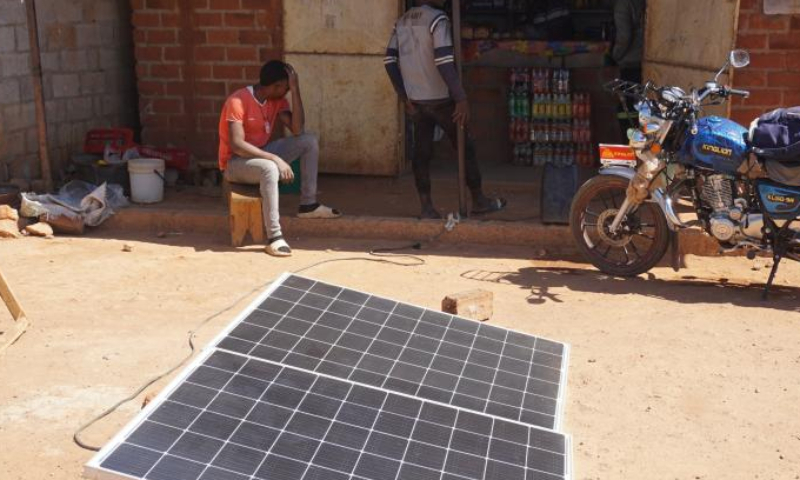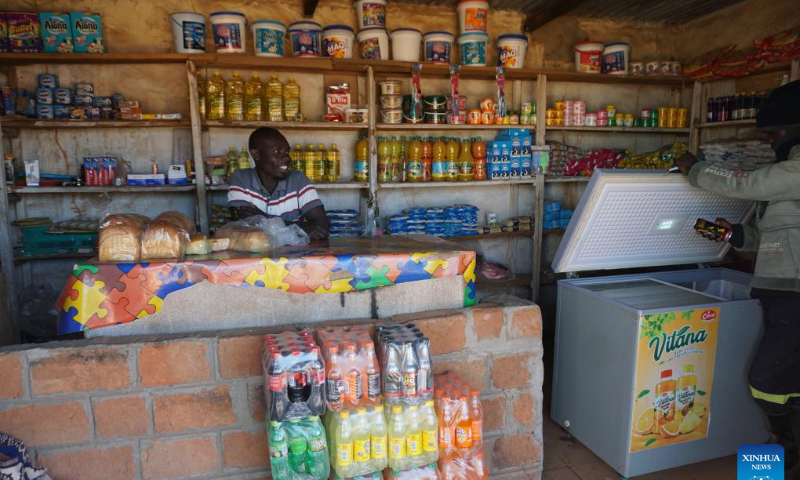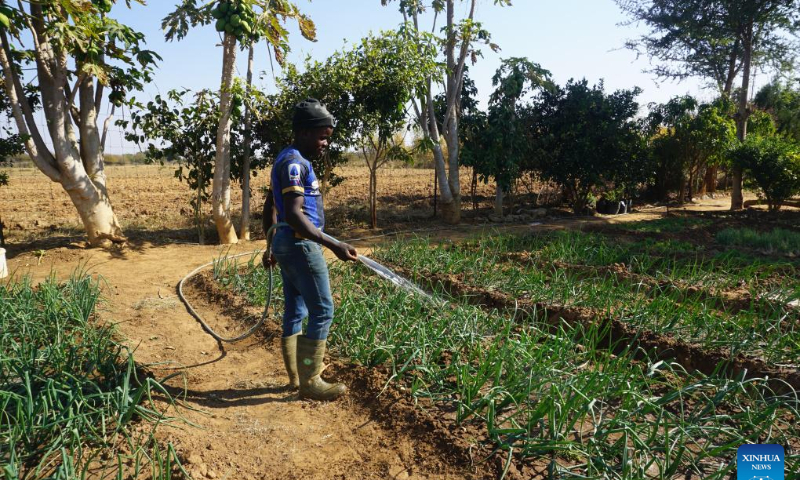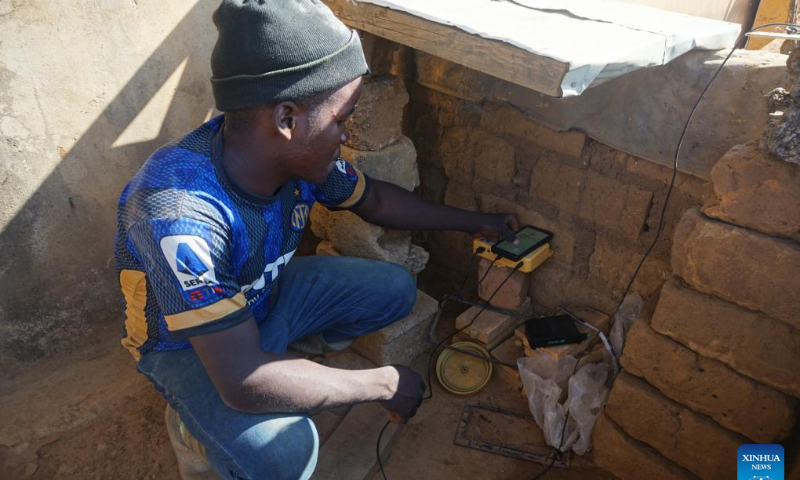
This photo taken on July 23, 2023 shows a grocery store powered by solar energy in a village in Lusaka, Zambia. (Photo by Lillian Banda/Xinhua)

This photo taken on July 23, 2023 shows an interior view of a grocery store powered by solar energy in a village in Lusaka, Zambia. (Photo by Lillian Banda/Xinhua)

A farmer waters plants using solar-powered irrigation equipment in Chibombo district, central Zambia, July 24, 2023. (Photo by Lillian Banda/Xinhua)

A man charges his phone using solar powered equipment in Chibombo district, central Zambia, July 24, 2023. (Photo by Lillian Banda/Xinhua)
In some parts of rural Zambia, especially remote ones off the national grid, access to electricity remains a luxury.However, things are beginning to change for the better thanks to solar energy use in rural communities, improving academic performance of students, who can now study even in the evenings, and enabling crop cultivation to go on all year round, courtesy of solar-powered irrigation equipment.
In addition, access to solar energy has also increased business opportunities and made rural areas more attractive for people to live in.
Some rural dwellers have bought solar kits that often consist lighting equipment, solar panels, batteries and a radio set. There are kits that also come with a TV set. The cost of solar kits depends on the capacity and size of the panels -- a small start-up solar kit costs about 2,000 Zambian Kwacha (about 107 U.S. dollars).
For Ketiwe Mapenda, a resident in Mwalubemba, a village in Chongwe district, in eastern Lusaka Province, life has improved significantly since her family invested in a solar kit.
"Solar power has brightened our nights. My children are able to study even at night, and I can cook and carry out other chores after sunset," said the 38-year-old mother of three.
People in the village used to rely on kerosene lamps and candles for lighting. Now they can turn to clean and reliable solar energy.
"It has also reduced incidences of houses catching fire and burning down as a result of mishaps in the use of kerosene and candles," Mapenda said.
Benefits of solar energy extend beyond basic lighting needs. It has enabled the installation of refrigeration systems, transforming the way villagers store food and helping small businesses thrive.
"We used to lose a lot of food due to lack of refrigeration," says Peter Mwila, who runs a grocery store in Namayani Village, west of Lusaka, the Zambian capital.
Mwila, 34, said having solar-powered refrigerators has increased traffic to his shop and propelled his business to greater heights.
"Sales have increased drastically since I got a refrigerator," he said. "I have a lot of customers coming through to buy cold beverages and meat and products which I only started stocking after buying stock refrigerators."
And John Banda, 21, a small-scale farmer based in Chibombo district, central Zambia, can now have his phone charged, enabling him to get more opportunities in the agriculture sector.
"I no longer have to miss out on opportunities to market or sell farm produce because of lack of reliable means of communication, all thanks to the solar kit," he said.
Access to clean and reliable energy such as solar has also slowed the pace for people to leave the countryside.
"People move to towns so that they can watch TV and be able to see streetlights. But villages now have those things in place, all thanks to solar energy," said 43-yer-old Mable Mbewe, a resident of Mumbwa district.
